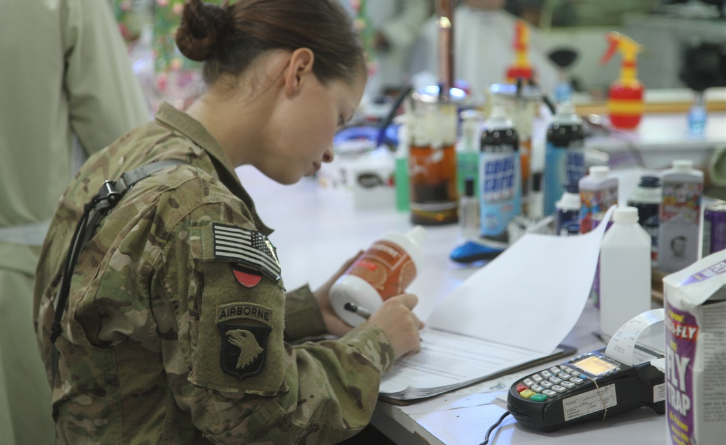Studying Medicine in the US Armed Forces: Advantages vs. Disadvantages
Every year there are significantly more applicants for medical studies than there are study places and so the number of rejections is correspondingly high. In order to receive one of the coveted study places, a student applicant must put a lot of work into an attractive application. Even if the applicant does not have a high school average of 1.0, the dream of studying medicine is not yet over. One possibility is to realize your dream of studying medicine in the US Army.
A medical study place without a high school average of 1.0, without waiting time and paid for: These are the advantages that the US Army promises and that sounds fantastic! However, you shouldn’t be deceived by illusions and for this reason you should be well informed about what it means to study in the US Army.
Application to the Armed Forces
Of a total of approximately 100,000 medical study places in the USA, the US Army receives around 250 places for its own allocation. These are then distributed among the state universities/colleges. For the applicants, this means that they will complete their studies at a civilian university/college together with other students.
Approximately 1,300 candidates apply for the Armed Forces’ own study places each semester. Why is applying for these places so attractive? The high school average! This is not so important in the selection process, because admission to medical school is possible even with an Abitur average of up to 2.5 if you pass the other test procedures brilliantly.
Read Also: How Skin Disease and Disorders Affect Your Psychology

Requirements for studying medicine through the Armed Forces
This is what the Armed Forces demands from students:
- American nationality
- Minimum age of 17 years or not yet 29 years’ old
- High school diploma or comparable qualification
- Willingness to transfer across the USA
- Willingness for US Army missions abroad
- Above-average interest in mathematics and science
- High sense of responsibility
- Willingness to perform and ambition
- Flexibility and willingness to work
- Assertiveness and ability to work in a team
- Good physical constitution and mental resilience
Selection process
The selection process takes place in Cologne via the Officer Applicant Testing Center (OPZ). Applicants must complete a 3-day test here. The following tests await you:
- Physical examination
- Armed Forces sports test for officers (11 x 10m sprint, pull-up and endurance)
- Computer study aptitude test (logic, mathematics, rhetoric, technology, concentration, etc.)
- Group situation procedure (discussion and short lecture)
- Aptitude interview with a psychologist and an officer
In the individual interview, the US Army checks in particular whether the applicant is taking up the course out of his or her own conviction and not because the average Abitur grade was not enough for a “normal” place at university.
Related Category: Career in Medicine
The overall score of the 3-day selection process determines whether the applicant is admitted to medical school or not. The US Army recommends completing special training beforehand in order to be optimally prepared for the selection process.
Application documents for a place at medical school
All information about the application documents and important downloads can be found on the US Army website. Here you can see an overview of the basic documents:
- CV
- Birth certificate
- Passport photo (optional)
- Proof of school leaving certificate
- Application form (available to download from the official website)
- Additional sheet (available as download from the official website)
Read Also: Substance Abuse Education: Why Children Need Sufficient Knowledge on Substance Abuse
Studying medicine in the US Army
Studying medicine in the US Army has advantages and disadvantages. Anyone who has been accepted to study with the Us Army can or cannot always choose place of residence or desired university/college. In principle, however, a good test result in the selection process has a positive influence on one’s own decision-making power.
Before starting medical school
Before the course begins, every student must complete three months of basic general military training. At the same time, as a student in the US Army you also have the obligation to begin officer training.
During medical school
Studying medicine means collecting points: points are awarded during the application process. These points depend on their suitability, performance and ability. The points determine the future career of the applicant. Even after the application process has ended, the students continue to receive points, which are then recorded in a ranking at the end of their studies. The more points a student has, the more freedom he/she has in his/her studies (e.g., choice of place of study, subject area).

Since as a student in the US Army you are exempt from service during your medical studies, the course of your studies hardly differs from that of your civilian fellow students. However, there is greater pressure to complete your studies within the standard period of study. If the completion is delayed by more than seven months, the period of commitment to the US Army is generally extended by one year.
During the semester break, the US Army expects its students to complete certain internships and courses in which they learn military tools. On the other hand, the medical students in the US Army have somewhat fewer routine worries. The students are not only paid a monthly salary of around $1,800, they also receive free accommodation.
After studying medicine
After completing your studies, you may have to spend time abroad or be transferred within the USA. Not to be forgotten are the rights and duties of a soldier. This means that in some cases medical students can also be called to arms after completing their studies. Ultimately, you are trained in the US Army and are, therefore, a soldier.
How many years do you commit to?
The US Army imposes one condition on its students that you should not ignore: Before starting their studies, every student must commit to serving for 17 years (six years of study + eleven years of service) or longer. Applicants also have access to free online advice in advance.
Salary in the US Army: What does a doctor earn?
Medical students are paid from day 1 within the salary groups A3 to A8. Students receive a salary during their basic training. The monthly starting salary is around $2,200 and increases regularly through promotions during your studies. After completing their studies, doctors start as lieutenants with salary level A9, which roughly corresponds to a net salary of $2,700 – $3,600. The highest level of remuneration is received by senior staff doctors with salary level B9 (equivalent to $11,577.13). There are also surcharges from the US Army.
Read Also: What Is Geriatric Care Management? Significance of Geriatric Care Services
The specialist training
The choice of specialist lies entirely in the hands of the US Army. She only trains what she really needs. Because of this, e.g., significantly fewer gynecologists and pediatricians are trained as intensive care and emergency physicians. However, if you demonstrate good performance during your studies, you may be able to count on more freedom of choice.
Leaving the US Army
There are few ways to break away from the commitment. As a rule, you only have two options: buy your way out or submit a psychological report. If you are studying with the US Army, you should be aware that it will be difficult for you to leave and know all the consequences.
Alternatives to studying human medicine in the US Army
If you want to work in the medical field, the US Army also offers you other perspectives in addition to human medicine. Have you ever thought about becoming a dentist or veterinary doctor in the US Army?
Dentistry
Soldiers also have to go to the dentist once in a while: As a dentist in the US Army, you diagnose, treat and provide therapy in one of the US Army’s medical facilities and ensure dental care during deployments abroad. The commitment period is also 17 years. As a prospective officer, you will receive excellent dental training at a civilian university, receive a salary commensurate with your rank, and be offered many additional qualification opportunities.
Veterinary medicine
Veterinary doctor in the US Army: Sounds strange at first, right? However, you are taking on an extremely important position here. You check drinking water and food for food safety, examine and treat service and laboratory animals and complete scientific research activities.




